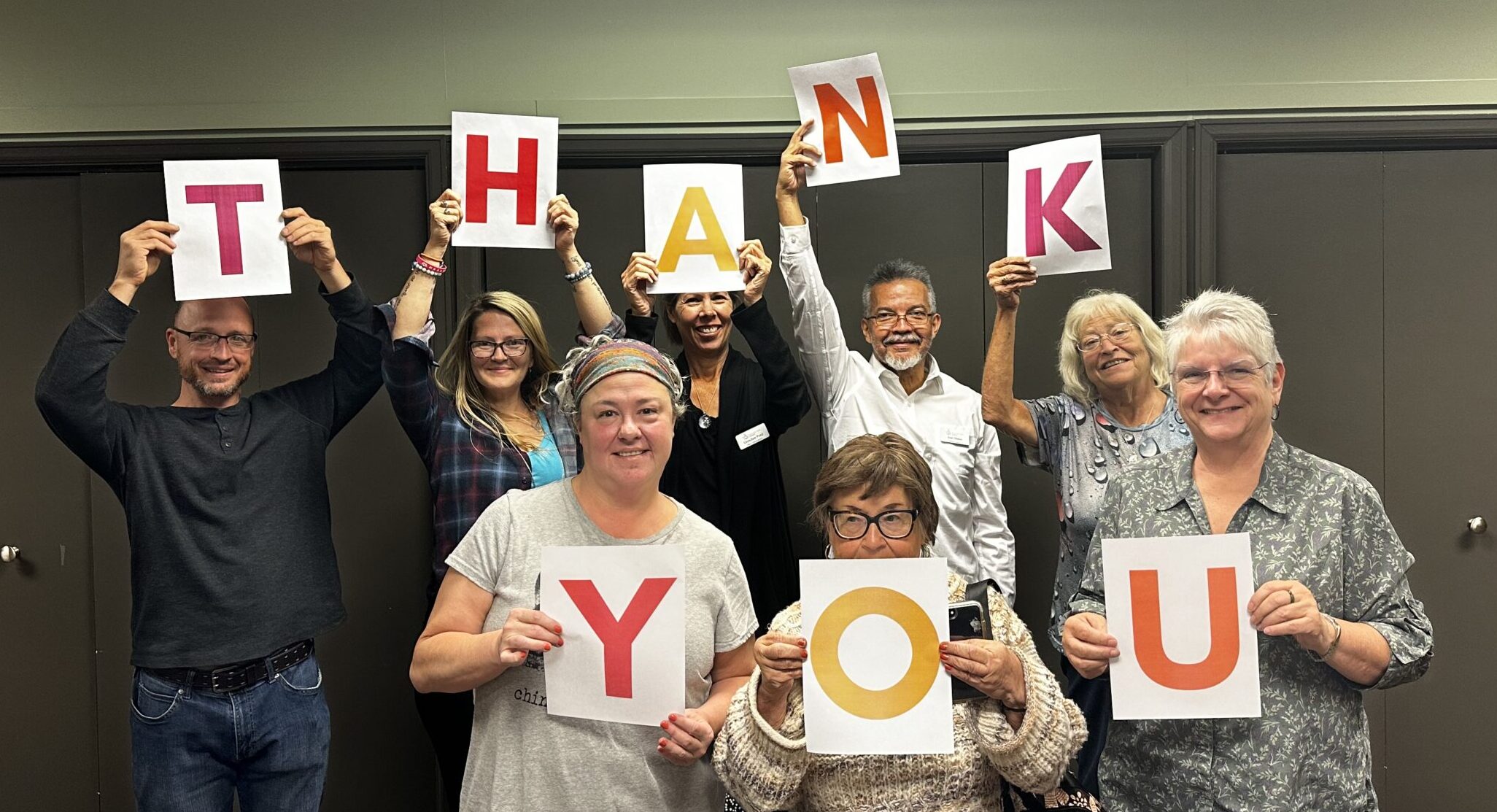
Boulder Weekly: Supporting sobriety
Story
Read More
As the year draws to a close and we enter the season of holiday-inspired gratitude, the staff at Recovery Café has been reflecting on just how much we’ve grown in 2024. We are incredibly grateful to our Longmont community, our members, and our cozy home at CentraLongmont for supporting us and being the reason we are able to do what we do.
At the beginning of this year, we could not have foreseen the transformation the Café would undergo; we are now open for a full, eight-hour day on Tuesdays, we purchased a new building, and our staff has nearly doubled, adding a total of four new peer support specialists, including one who is bilingual and two who work as liaisons with the probation office. We’ve also added a new communications and media manager and an office administrator.
Because of this growth, we have created three new Recovery Circles that meet at the Café. Taking into consideration our current member base, these include a Women’s Recovery Circle, a Men’s Recovery Circle, and a Spanish-Language Recovery Circle. Expanding our programming to accommodate individual identities and create safe spaces to discuss sensitive issues helps us serve more members on a deeper level. In supporting the unique challenges of different identities, we continue to learn about cultural responsiveness to support a more diverse community and address specific cultural and gender-related topics in our programming.
For those unfamiliar with Recovery Circles – these weekly meetings are a key part of the Recovery Café Model. Per the Recovery Café Network,
“Recovery Circles are a crucial facet of our service delivery model, designed to prevent recurrence of use by reducing social isolation, providing positive modeling behaviors, encouraging honest feedback, and increasing emotional support.”
One requirement for membership is to select a “home” Circle and attend weekly. Here, our members establish relationships with each other and Peer Support Specialists. Because groups are small (6-10 participants), these one-hour check-ins are focused and provide a chance to discuss all aspects of recovery with people who understand — providing connection, resources, and support. Recovery Circles maintain structure with consistency and accountability while offering a space for growth and exploration, instilling healthy motivations and habits in our members.
Since its start in May with a few of our original female members, our Women’s Circle has grown, bonded, and become a mainstay of Wednesday mornings. Women’s Circle now has eight-to-ten regular participants who often linger for lunch, then stay for “Art and More,” eager to continue their conversations. Café member Adrienne shared, “I’ve made good friends in Women’s Circle. We all look out for each other and it makes us happy just to see each other.”
Gender-specific affinity circles start on common ground where participants feel more comfortable being vulnerable. The need for gender-specific Recovery Circles has been reinforced by the change we have seen in our membership since starting our Women’s Circle with a 50% increase in female membership and 37% more members attending their respective circles.
Seeing this success, Program Manager Chris Poma was inspired to create a Men’s Circle. Kicking off just last month, the group has generated strong interest among members. The core group has already learned to support each other, celebrate successes, and encourage each other through hard times.
“The Men’s Circle participants have built a really healthy and encouraging friendship,” Chris shared, “and they welcome each new person with open arms.”
From our members to our staff, the motivation to grow and find new ways to support each other and the community is never-ending. When we extended our Tuesday hours in July, we created a Spanish Recovery Circle. Given the significant Latino population in Longmont, Bilingual Program Manager, Kristina Garcia, advocated for a space that honored the cultural sensitivities around mental health, substance use, stigma, and recovery. (Read more about our Spanish Programming here.)
We’re growing our programs outside of our four walls, too. Peers facilitate Satellite Recovery Circles at The Suites supportive housing, the local Longmont halfway house, and will be established early next year at Boulder County’s newest permanent supportive housing unit, Zinnia. Taking Recovery Café on the road shows that connection is not rooted in any particular space, but in the people we are with. Our Peer Support Team excels at engaging with and building community wherever they go.
Although our program schedule becomes busier by the week and we constantly shuffle meetings from room to room, we are grateful for the opportunity to expand and address the needs of more and more of our community. As our team grows and new faces come through the door daily, we are provided a glimpse of the future in our new home at 801 Main, where we know increased visibility will lead to more awareness of our services.
At Recovery Café Longmont, we offer a unique promise: to create a community of refuge and healing for people in recovery. To us, the growth we have seen in 2024 is proof that our model and mission work. Regardless of what step in the recovery journey we find our members, they can and will find connection and healing. We will always remind them that they matter and have a place to belong.